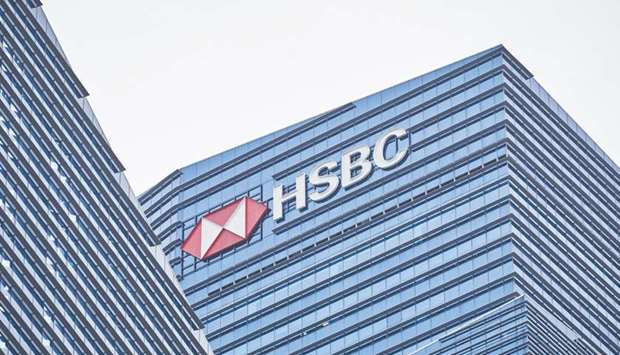HSBC Holdings Plc’s search for growth is targeting wealth management as a potential new profit engine as it deepens its focus on Asia.
In a presentation this week outlining the embattled lender’s second strategic reset in a year, chief executive officer Noel Quinn told about 250 top managers that HSBC aims to become one of the world’s biggest wealth managers.
Quinn said on the Tuesday call that the bank would “invest at scale” where it sees the greatest opportunity, pointing to Asia, the UK and the Middle East as likely areas for expansion, according to a document seen by Bloomberg. A spokeswoman for HSBC declined to comment for this article.
While HSBC is the biggest international bank in China and the largest lender in Europe, it’s a relative minnow in the business of managing assets for the world’s wealthiest investors. It oversaw just over $361bn of assets on behalf of its wealthiest customers at the end of 2019. UBS Group AG, the world’s biggest wealth manager, had $2.6tn of assets under management.
In 2019, about 65% of the $8.6bn in adjusted revenue generated by HSBC’s wealth management and private banking operations came from Asia, according to an August presentation by the bank at a Goldman Sachs Group Inc conference. While Chairman Mark Tucker said last month that the Asian wealth business was one area for potential growth, rivals such as UBS and Credit Suisse Group AG are also beefing up in the region, driving up the cost for talent and clients.
Tough year: Tucker and Quinn are revisiting a February 2020 strategy reset after it was overtaken by the fallout from the Covid-19 pandemic. The measures included the elimination of 35,000 jobs, about 15% of the total. The new steps will be announced with the company’s full-year financial results on Feb. 23.
The bank’s shares have risen this year, though they have trailed the likes of JPMorgan Chase & Co and Banco Santander SA. Hopes that HSBC will reinstate its dividend have driven much of the rise after it and other large UK banks were told by the British authorities to cease shareholder payouts due to the pandemic.
Along with the financial stress, HSBC executives have had to navigate political conflict over its position in China.
Most recently, Quinn and Colin Bell, group head of compliance, were summoned by British lawmakers this month to explain the decision to freeze the accounts of exiled Hong Kong legislator Ted Hui.
Job moves: As part of the coming shakeup, HSBC is considering moving some of its top executives to Asia. Bloomberg News reported this month that Greg Guyett and Georges Elhedery, co-heads of global banking and markets, could relocate to Hong Kong.
Additionally, Barry O’Byrne, head of global corporate banking, and Nuno Matos, head of wealth and personal banking, could also move from London to Asia, according to people familiar with the matter.
If all the moves were to be confirmed it would mean that much of the bank would be run on a day-to-day basis thousands of miles from its London headquarters.
“HSBC’s revamped 2022 restructuring and growth plan will likely upgrade cost-savings targets considerably beyond $5bn, maintain a ROTE target above 10% in the medium-term, and accelerate US restructuring, Asian growth and investment, we believe”, says Jonathan Tyce, BI financials analyst.
HSBC this month announced the opening of a new office in Guangdong to steer its push into the Greater Bay Area, a Beijing-backed project to create closer links between Hong Kong and several southern mainland Chinese cities, including the tech hub of Shenzhen. The area is home to 72mn people and speaking last month, Tucker said the bank saw “substantial opportunities” in the zone.

HSBC Holdings headquarters in the central business district of Singapore. HSBC’s search for growth is targeting wealth management as a potential new profit engine as it deepens its focus on Asia.
